Disclosure: Meeple Mountain received a free copy of this product in exchange for an honest, unbiased review. This review is not intended to be an endorsement.
America, 1950s: Thanks to the post-war baby boom, there are babies everywhere! It is up to you and your fellow architects to design neighbourhoods to house these tiny humans and their families. The player who best manages the construction of the three streets they’ve been assigned will be crowned “Best Architect”.
Welcome To… is a roll and write game with no dice or rolling involved. Instead, it uses a deck of cards. In this game, players build houses, group these houses into high-scoring estates, and improve the quality of their neighbourhoods with fancy pools and beautiful landscaping. Each player can also promote the quality of their constructions by raising their estates’ value. In times of need players may also recruit workers through temp agencies to hasten their construction since players are racing, after all, to be the first to complete the City Plans.
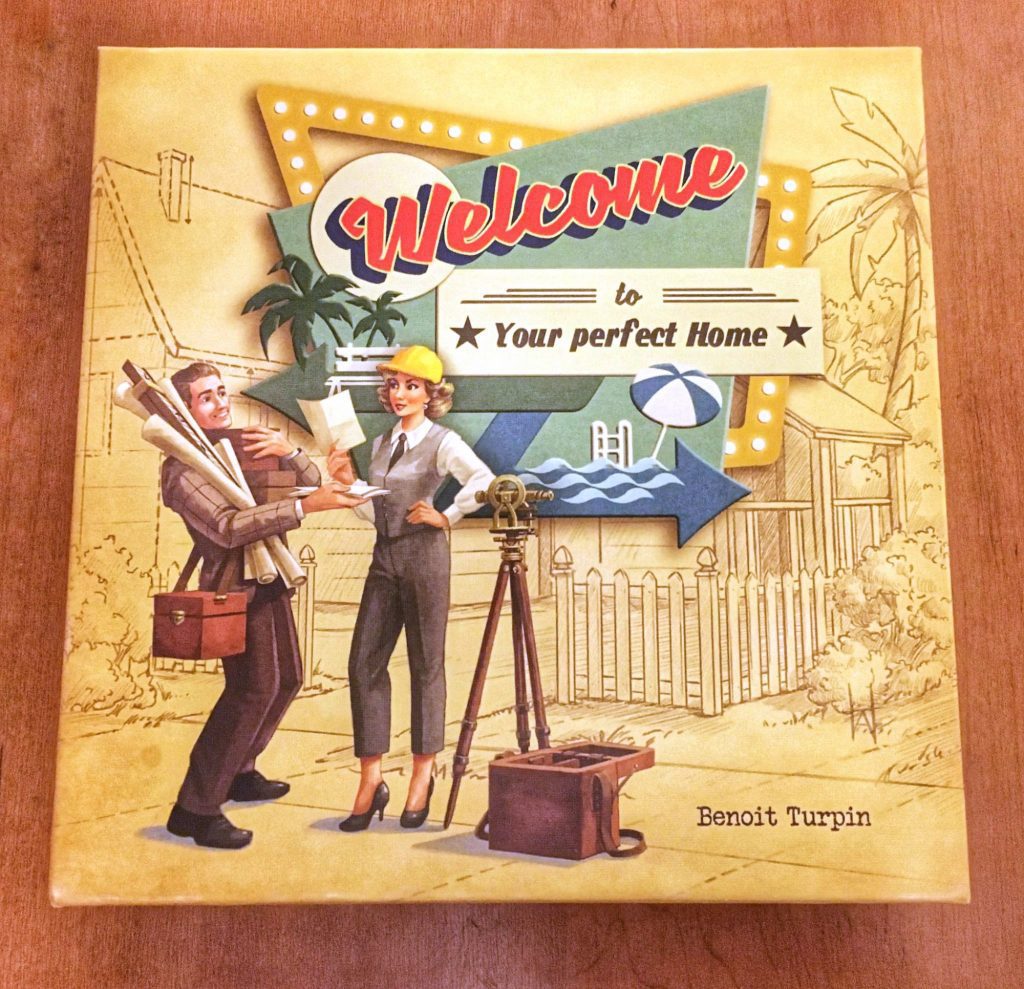
Welcome To… The Gameplay
There are no individual player turns in Welcome To… ; everyone plays at the same time using the same set of revealed cards. While each player’s sheet may look similar for the first few turns, as the game progresses they start to look different with every choice made. This can be likened to games such as Karuba and Tiny Towns.
Every turn a card is flipped from each of the three stacks, revealing three card pairs with a new house number and a corresponding effect.

Players simultaneously choose one of the three combinations (house number and effect), writing the new number on their player sheet and possibly using the effect. Any number of players may use the same combination of cards. Once all players have constructed (written) their house and used the corresponding effect, a new card is drawn from each stack and players repeat the process.
Welcome To… House Construction
Each turn, a player must add a house to their player sheet using the number from their chosen combination of cards. The player writes this number in a house on one of their three streets following these rules:
- the number must be written in an empty house
- the house numbers on a street must be in ascending order, from left to right
- the same number cannot appear twice in the same street
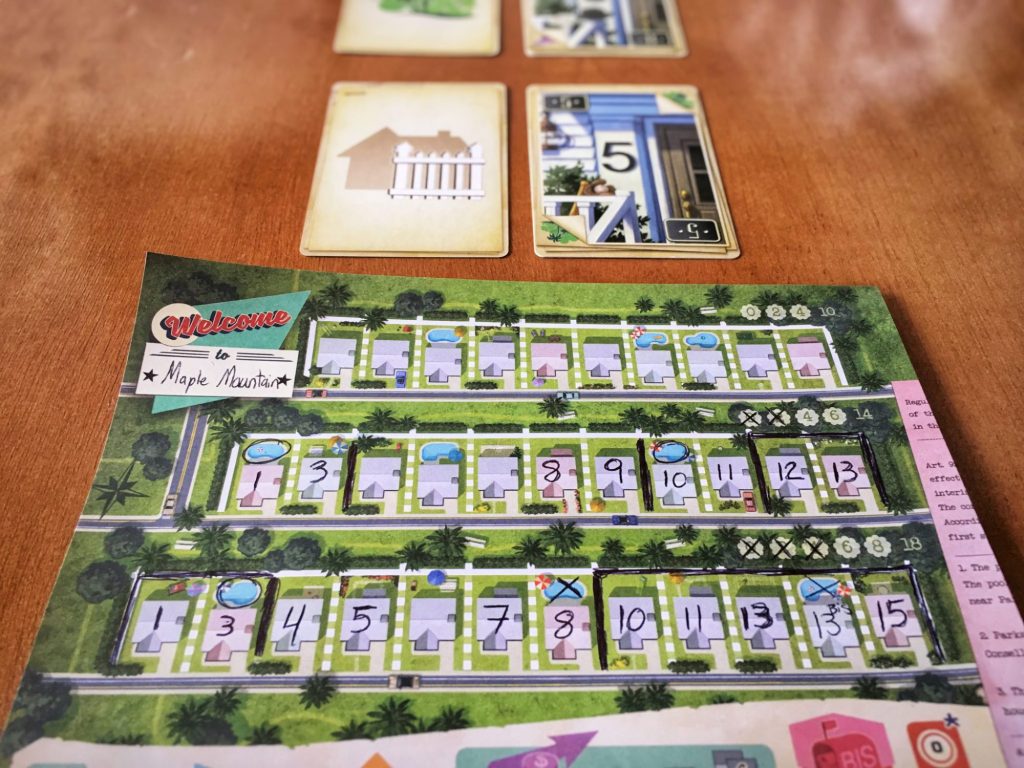
Players may choose to leave empty houses in between their constructed ones and they may also skip house numbers as long as they continue to follow the placement rules above.
Players must construct a house each round. If they run into a situation where this isn’t possible following the house placement rules then they receive a building permit refusal, crossing off the appropriate space on their player sheet. At the end of the game, the player might lose points for their careless development.
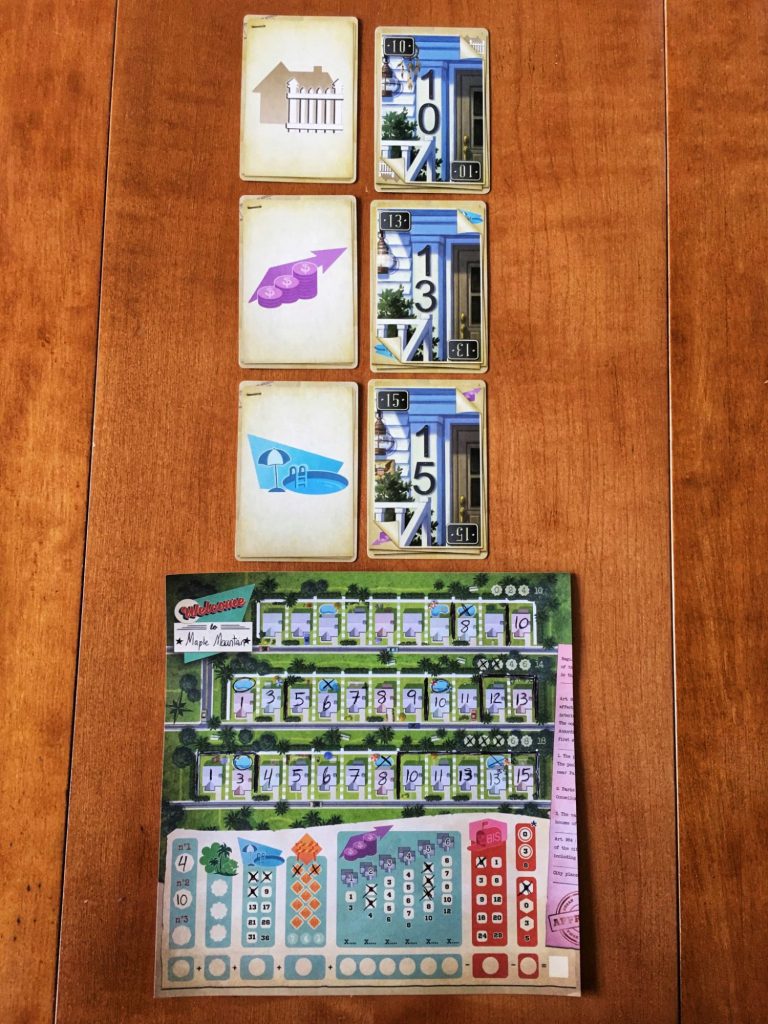
Every turn a player constructs a house, they may use the corresponding Effect card from their chosen combination.
Welcome To… The Effects
Everything you do in Welcome To… is in the service of scoring the most points at the end of the game, usually after crossing things off. The various Effect cards help you accomplish this.
Landscaper
This effect allows you to build a park on one of your streets. Cross off the leftmost park space on the same street as the house you just constructed.
Pool Manufacturer
Each player sheet has houses planned for pools. If you build a house with a planned pool and that house number’s corresponding Effect card was the Pool Manufacturer, a pool is built. Circle that house’s pool and cross off the topmost, lowest-numbered space in the Pool section of your player sheet.
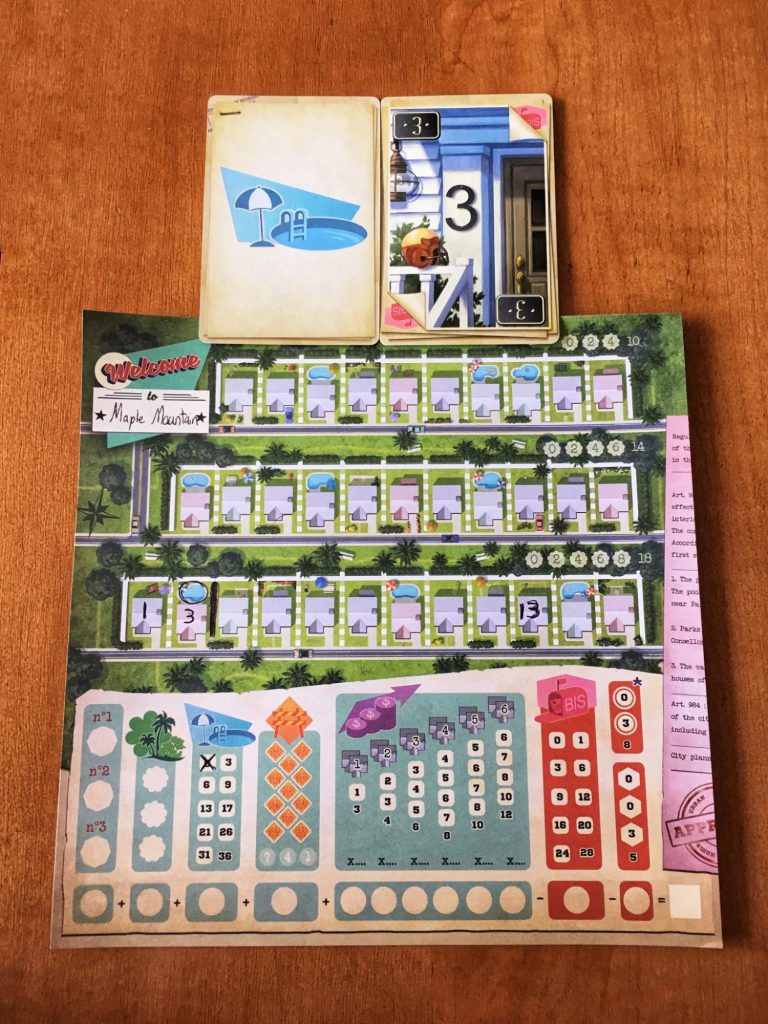
Pools can be a little tricky: while you want to maximize your houses with pools, it doesn’t always work out how you would like. Players always have the option to add a house number without the Pool effect to a space with a planned pool. They may also add a house with the Pool effect to a space with no planned pool. However, in both cases, a pool isn’t built and a space isn’t crossed off in the Pool section on your player sheet.

Temp Agency
City planning and house construction is challenging so the Temp Agency is there to give players some wiggle room. This effect allows players to add or subtract 1 or 2 from the house number they are building. Every time a player uses the Temp Agency, they cross off a box in the Temp Agency section of their player sheet (look for the orange barricade).
Surveyor
This effect allows players to build fences between two houses on any street. Fences are important because they determine the boundaries of your housing estates (a row of one to six neighbouring houses with no empty houses built between two fences). Housing estates are needed to complete City Plans.
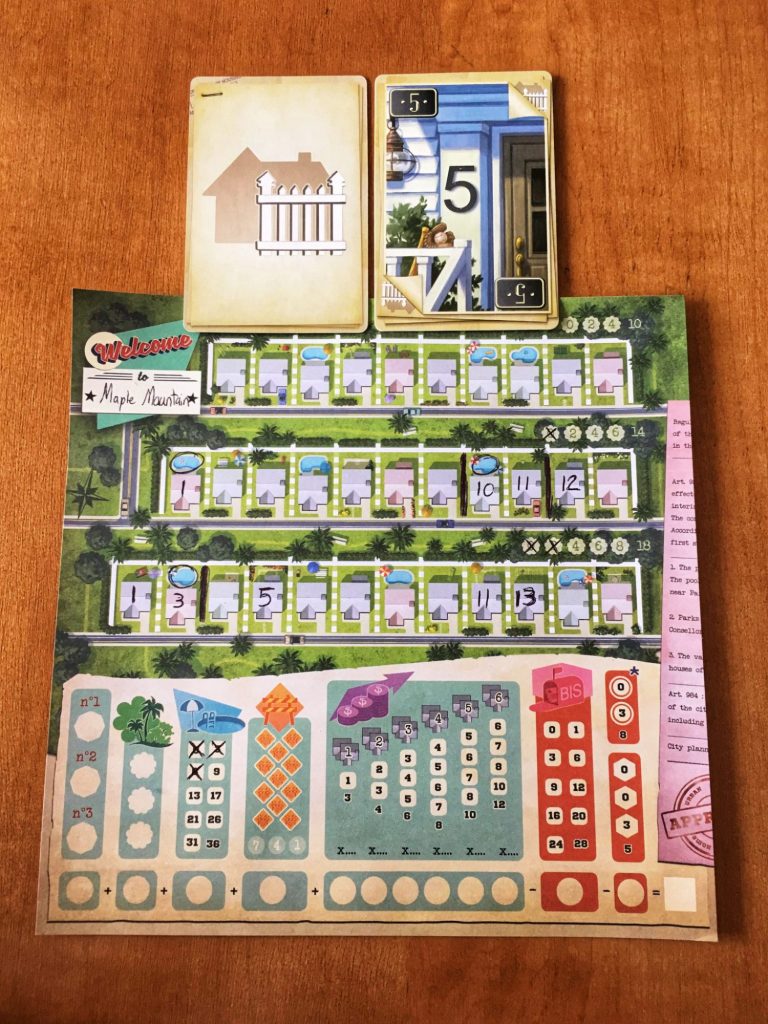
Real Estate Agent
The Real Estate Agent effect promotes your neighbourhood’s completed housing estates, increasing their value. To use this effect, choose any column in the Real Estate section of your player sheet (purple dollar sign area) and cross off the topmost, lowest-numbered space.
«Bis»
The Bis effect is there in times of desperation: Did you get too excited to place a pool and now you have three empty spaces between your 4 and 5 houses? Maybe you’re worried a 15 won’t come up before the game’s end and you want to complete a housing estate. Perhaps you just want to beat your opponents to a City Plan. The Bis can help in all of these situations because it gives you some flexibility and lets you complete two houses in just one turn.
Bis, from the French word meaning “second” or “another”, helps you add an adjacent house with the same number by breaking the house construction rule I referred to earlier. While the Bis effect allows you to duplicate a house number on any street (and does not have to be associated with the House/Effect card combination), it does come at a cost, losing you points at the end of the game. To keep track of each Bis used, cross off the lowest-numbered space in the red Bis column on your player sheet.

Welcome To… City Plans
City Plan cards set housing estate goals for the players; each game of Welcome To… uses three City Plan cards. There is a bit of a race to complete these City Plans first since the player to do so scores more points. Once a City Plan is completed, it is flipped to its “Project” side. The other players may still score it, but they receive fewer points.
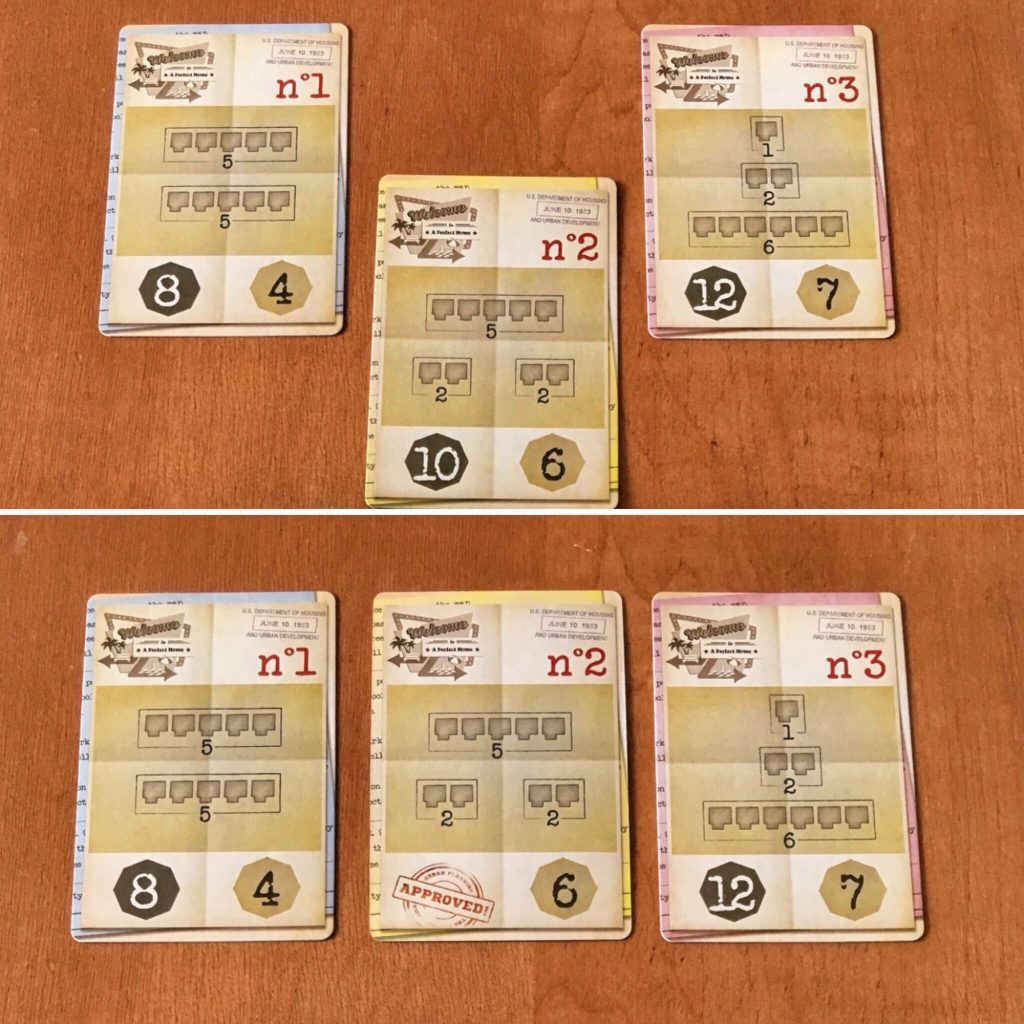
Welcome To… The End of the Game
The game ends immediately when one player has:
- crossed off their third building permit refusal (aka can’t build a house for the third time), or
- completed all three City Plans, or
- built all of their houses.
Each player then looks to the bottom of their sheet to score points in various areas. Scoring for all sections in Welcome To… behave similarly: a player scores (or loses) points based on the value of the lowest visible number (that was not crossed off).
You get points for your parks, pools, fenced-in houses, the Temp Agency (relative to other players), and the in-game goals (City Plans) . You lose points from the Bis, as well as building permit refusals. The player with the most points wins.

Welcome To… The Variants
In addition to the eighteen basic City Plan cards, Welcome To… also comes with ten advanced City Plans which change the flow of the game. Roundabouts are also introduced in this advanced variant.
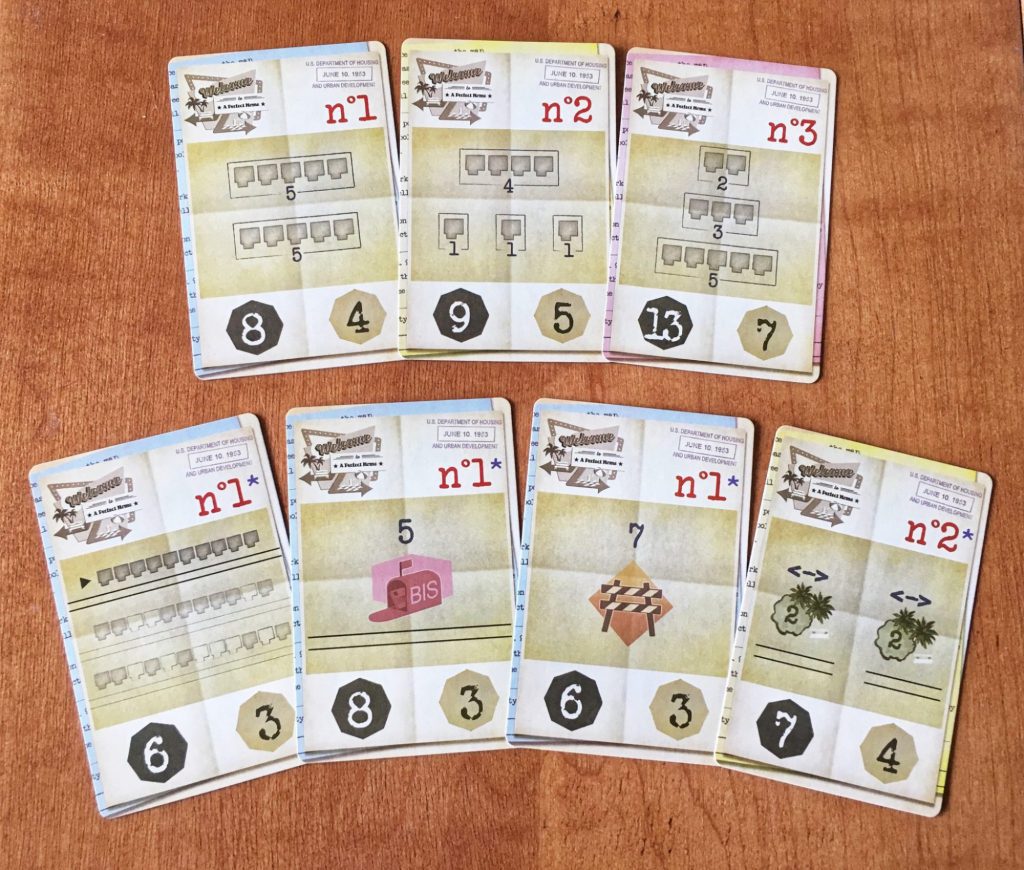
For the players unwilling to bend to the gods of random card draws, Welcome To… includes expert rules. Using these game rules, players are more in control of their construction. Player interaction also increases since this variant essentially involves drafting the card combinations you use each round.
Finally, Welcome To… contains a solo variant which blends the base game and the expert rules as a player works to achieve their highest score. Each turn, draw three cards and from them choose two: one for its house number and the other for its effect. The solo game captures the tension of racing to complete the City Plans first with the use of the solo card which, when drawn, flips all the Plans to their Project side. It also simulates the stress of the multiplayer game with the introduction of a fourth game end condition: the draw pile of cards is empty. With three cards used every turn, the end of the game can really sneak up on you in the solitaire experience.
Welcome To… My Final Thoughts
Welcome To… may initially seem like a complicated game with many rules, but the gameplay flows rather nicely. There is a fair bit of information for new players to grasp upfront, but after a round or two, they will have it down. Besides, once each Effect card is explained, the player aids are a valuable resource for newbies.

I’m sure there are board gamers out there with concerns about the randomness of the cards drawn. Well, the game has two ways to mitigate this: the first is to use the expert rules which involve drafting the cards every turn and the second is to use the cards themselves. Let me explain. Every card is double-sided: on one side is the effect and on the other, the house number. However, there are also icons in the corners depicting which effect is on the other side. This means that every turn, a player can anticipate the effects. It may seem like a minor detail to note, but players can really use this information to their advantage (especially when other players are ignoring it).
I’m sure too that gamers are wondering about the replayability given that Welcome To… only comes with a single version of the player sheet. Good news: every game I have played (and there have been many) feels different from the last because, while the player sheet remains the same, the card draws are always changing as are the City Plans. If that isn’t enough, I have even better news for you because there is an expansion with new player sheets (and new ways to score as well). While this is great for variability, they aren’t necessary in my opinion; there is enough variety in the base game alone.

While I’m no Suzanne Sheldon, I do love a smart roll and write game. There is just something about this style of game that’s so perfect to me; the dice (or cards) add enough randomness to the game that it remains interesting and tense, yet there is still a level of planning and strategy needed in order to do well. Welcome To… is no exception as it fits this perfect mold. The game feels unique (in spite of a market inundated with roll and write games) and it’s satisfying to play. I love completing the City Plans (even if I’m not the first to do so) or filling in an entire street with houses. There’s also nothing like getting the right House/Effect card combination that lets you finally build in a space you’ve been waiting to fill with a house AND a pool. Whether I win or lose, Welcome To… makes me feel good and that’s really all I want from a board game.





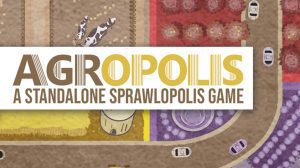






Add Comment